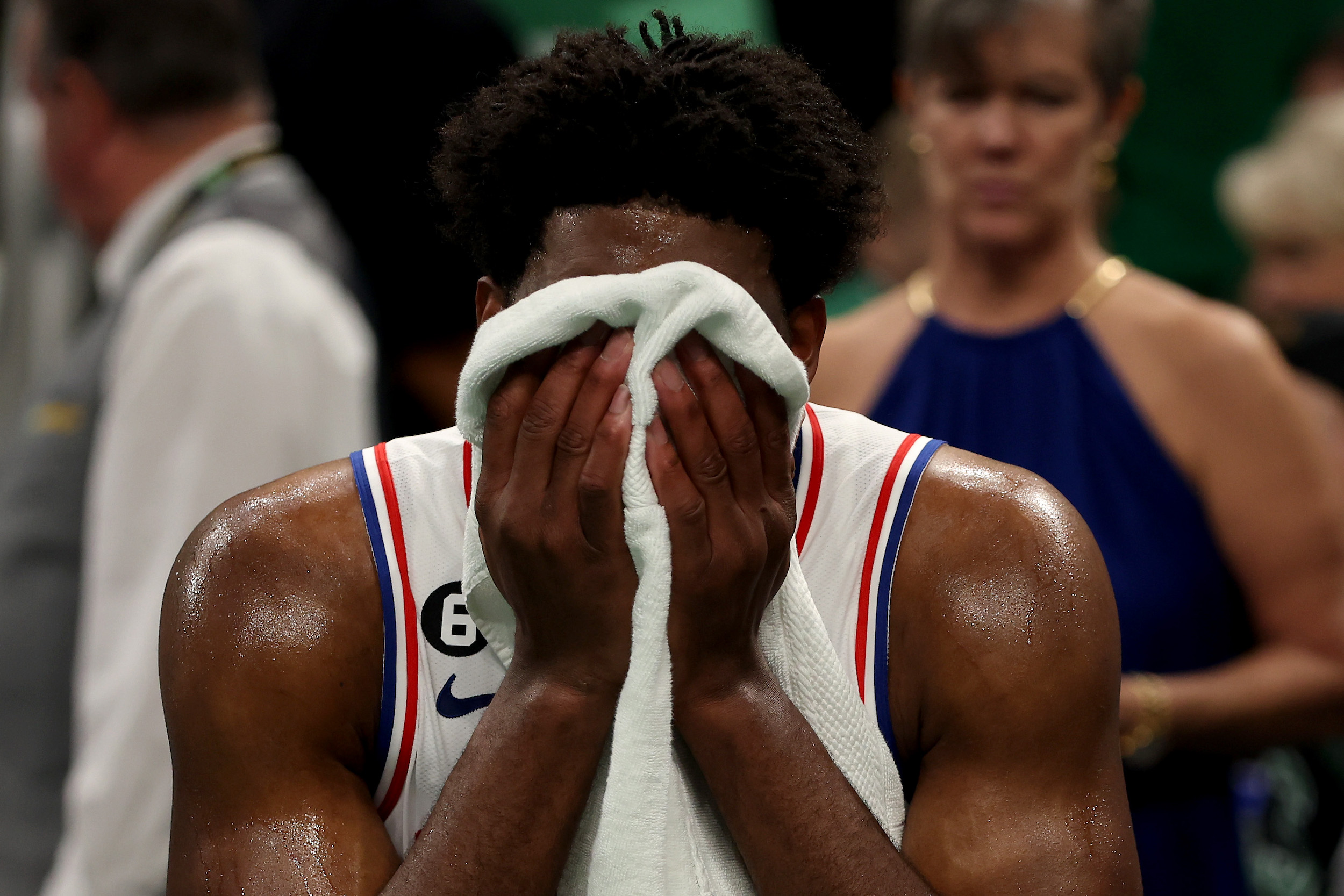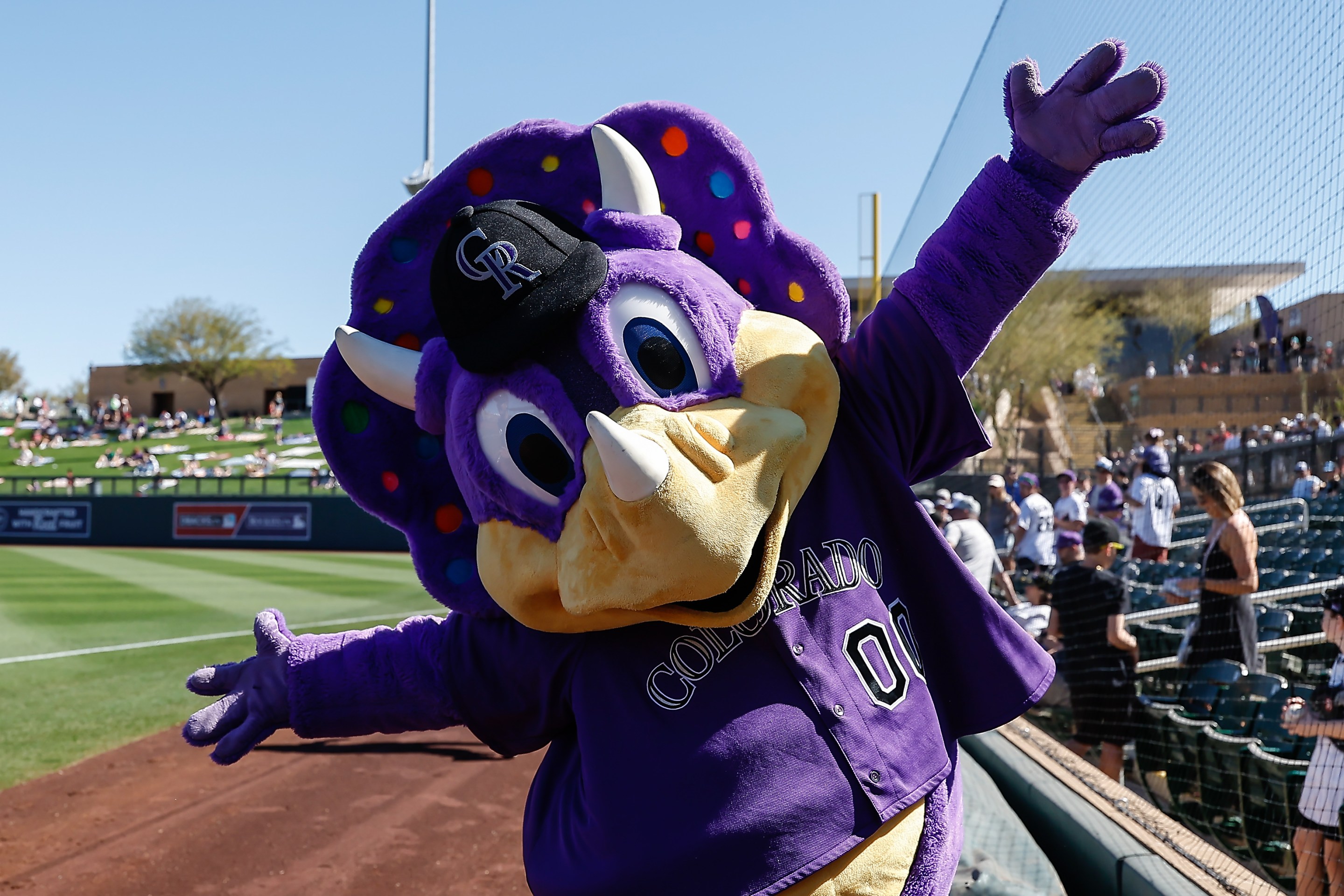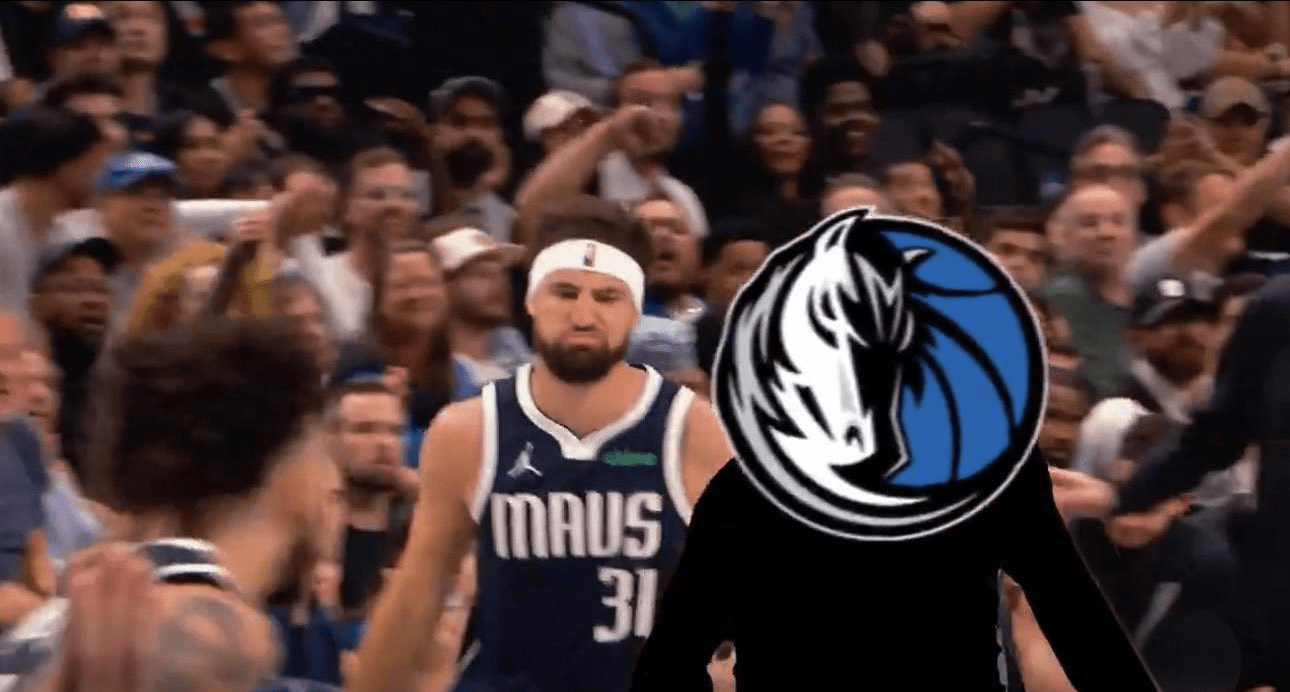It's going to be another cruel, cruel summer for the various members of the Philadelphia 76ers organization, following a miserable massacre of a Game 7 loss to the Boston Celtics on Sunday. There's a non-rewarding argument to be had, if you're into masochism, about the proper scope of organizational failure represented by Philly's latest second-round playoff exit—remind yourself that the Sixers lost in seven games to a higher-seeded opponent, and had the lead inside the final six minutes of what would've been a decisive Game 6—but wherever you come down on that, there can be no denying that this result represents an organizational "well, shit."
Philadelphia's decision-makers will have to confront some painful realities as they plan out the next phase of the team's still-open championship window. There will be the inevitable James Harden question. Harden's contract includes an option for next season, valued at $36 million. Players of Harden's stature generally choose to decline final option years, when healthy, preferring to secure a next long-term deal. The 76ers are in a little bit of a bind, there. Harden bombed out, posting 22 total points on 7-for-27 shooting across the two elimination games of the Celtics series, both Philadelphia losses. He'll be 34 years old next season, and a year deeper into what is starting to look pretty unmistakably like the backslope of his career. Retaining Harden's services will likely mean handcuffing him to Joel Embiid for the entirety of whatever remains of Embiid's prime playing years. NBA payroll rules would require the team to fill out the remainder of its roster with rookies, rookie-scale youths, rookie extensions, and the various cheap exceptions and minimum-value contracts available to teams operating over the salary cap, and all while navigating around or over the luxury tax threshold.
But losing Harden could be even more painful. The Sixers already owe about $57 million in active player salary above next season's projected cap, with several roster spots left to fill. Even clearing away Harden's $36 million for next season won't gain the team any cap space to sign free agents. A good and well-run team can use roster exceptions and minimum contracts to fill out its bench and even the end of its rotation, but if Harden bolts for, say, the particular charms of Houston nightlife, the Sixers will have an extremely hard time filling his roster vacancy with a remotely comparable replacement.
There will also be the Doc Rivers question. Rivers has been in Philadelphia for three seasons, although it feels like approximately one million. The Sixers have finished no worse than fourth in the Eastern Conference over that span, but have never advanced beyond the second round of the playoffs. Rivers is a really fucking good NBA head coach: His teams have won 59 percent of their regular-season games, and in 23 complete seasons as a head coach he has failed to reach the playoffs just four times. But his playoff record is not great—Rivers-coached teams have advanced beyond the conference semifinals just twice in 19 tries—and Rivers is dogged by the perception that his teams reliably run out of ideas in the playoffs, and retreat to worn-out underdog footing both for motivation in place of inspiration and as a built-in excuse for failure. Nobody Believed In Us is a cool thing to shout after you win; after a deflating loss, it's a humiliating way of admitting that your detractors were right all along.
Doc Rivers says he’s disappointed about the season ending this way, but that the team believed in itself the whole way. Rivers said that nobody in the media picked them to win the series, but they thought they would.
— Adam Aaronson (@SixersAdam) May 14, 2023
These and other organizational difficulties—how best to finally be rid of comprehensive disappointment Tobias Harris, for example—pivot on the goal of maximizing however much is left of Joel Embiid's infinitely precious athletic prime. On that note, next autumn will be the start of Embiid's age-30 season. These last two regular seasons Embiid has finally become Godzilla, winning consecutive scoring titles while narrowly topping 2,200 minutes played for the first and second times in his career. For reference, LeBron James played at least 3,000 minutes in seven of his first eight professional seasons; fellow huge guy Nikola Jokic has not played fewer than 2,300 minutes since his sophomore year, when he was backing up Jusuf Nurkic. Embiid remains one of the most carefully load-managed players of his generation, for good reason.
Bad luck has played a part in ending several recent Embiid-led playoff runs—hand and head injuries in 2022, Ben Simmons's brain exploding in 2020, Kawhi Leonard's gravity-defying Game 7 buzzer-beater in 2019—but this season's excruciatingly non-competitive, premature-feeling exit seems different. A knee sprain like the one Embiid suffered in the first round of these playoffs feels less fluky and more wear-and-tear related than, for example, the orbital fracture of last season, for one thing. For another, across these last two games Embiid looked less acutely injured than busted-down and exhausted. When he's fresh and feeling good, Embiid is the most frightening two-way player in the sport, a huger and savvier and vastly more aggressive version of Anthony Davis; when he's tired or hobbled or discouraged or all of the above, as he was late in Game 6 and for the entire second half of Game 7, he's still a sublimely talented guy, but a very very slow one who has trouble jogging between the free-throw lines, commits too many turnovers, and falls down an awful lot.
It didn't help that Rivers continued to run the same predictable, largely ineffective stuff over and over again as the season slipped away, using Embiid as the screener for actions way up the floor and then hoping to catch him on the short-roll with space to operate against advantageous individual matchups, long past the point when the Celtics had proven that those rewards were not coming. It didn't help that Harden once again became his worst basketball self at the worst possible time. It doesn't help that Harris can never be counted upon to do more than occupy space, or that P.J. Tucker has zero offensive utility, or that the 76ers went into this Game 7 needing productive minutes from deeply unimpressive role-players like Danuel House, Paul Reed, and De'Anthony Melton. The Sixers will spend this summer working to sort out some or all of these situations, and upgrading where possible.
The NBA's cap-and-tax structure is designed to make it hard to sustain success. It's prohibitively difficult for an expensive team to change for the better; everything the Sixers do from here will be weighted by the league's bizarre preference, driven by the sport's shittiest owners, to drag good teams back toward mediocrity. And the 76ers do not have a recent track record of beating these odds with savvy decision-making. The trade that swapped Ben Simmons for James Harden, for example, was a winner, but it's important to remember that the 76ers only had Simmons to dump because after 2019's close brush with greatness they preferred Simmons over Jimmy actual Butler, and let Butler walk via sign-and-trade to the Miami Heat, with hindsight one of the worst and most embarrassing personnel decisions of this era. In the years since, as Embiid has reached new heights of individual greatness, it feels like the team around him has gotten shabbier and shallower, as the organization has struggled to grapple with the NBA's arbitrary and punitive roster-building obstacles, obstacles that The (aborted) Process was expressly designed to circumvent.
The thing that I want, as a basketball fan, is for whatever the 76ers do next, to line up this next phase of their title hunt, to work better than what they've tried so far. Not because I want the Sixers to win a title but because Embiid is one of the greatest individual performers of this or any other generation. I have absolutely no confidence that Embiid's bones and ligaments will sustain very many more all-out assaults on the summit, and I wonder whether he can sustain MVP-level play for six months of regular-season basketball and then still go Godzilla Mode for a full playoff sprint. It misses the point, I think, to fixate on Embiid's share of blame: A player who is capable of doing what he can do when he is at his best is capable of winning a title! The job of his organization is to furnish him with what he needs in order to get all the way there. It will be a travesty for all hoops fans if bad luck, bad conditioning, and a litany of team-building missteps prevent him from playing at his peak powers in at least one NBA Finals, before the otherworldly basketball gifts that make Embiid such a historical rarity begin their inevitable decline.





